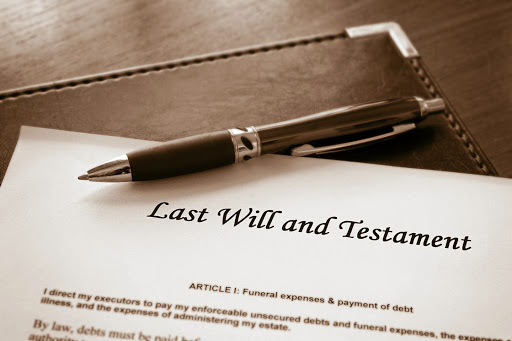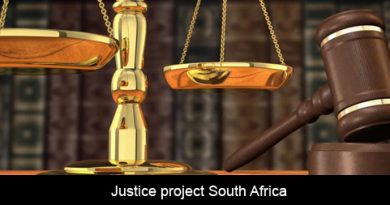Important considerations for drafting a Will
The importance of having a Will has been emphasized at length in the South African environment, with a specific period in the year having been dedicated to the topic for some time. Despite this focus, it is something that South Africans continue to shy away from.
This resistance could be due to several factors. Some may be of the assumption that they do not need a Will; that it does not apply to them or that everything will automatically be taken care of when they are no longer here. It may also invoke a sense of morbidity to which the human instinct may be to avoid the topic. Often, people just do not get around to doing it or put it off and focus on other life commitments instead.
It is important to remember that drafting a Will is not necessarily about death, but it is a means of structuring your estate in such a way while you are still alive so that it may benefit your loved ones in the future.
What is the best way to go about drafting a Will?
First, sit down and ask yourself: what is it that I want to achieve by putting this document together? A good place to start is by drawing up a list of your assets to get an idea of what you have ownership of, which could be anything from a home to a Retirement Annuity, pension fund and life cover to investments with different institutions.
Once you have completed that process, you can give some thought to who you want these assets to go to in the event of your death. It does not necessarily need to be a case of leaving each asset to a certain individual, you can decide for your whole estate to go to one person such as your spouse or children in equal shares, for example.
Keep in mind that your Will is not prepared in isolation, and forms part of your financial planning process. Just as you plan for your future, retirement, and healthcare needs, another aspect of your financial planning is estate planning, which deals specifically with what happens to your assets when you are no longer around, with your Will acting as the cornerstone of that process.
Drafting your Will without a professional comes with pitfalls
Once you have an idea of your assets and who is going to get what, now comes the step of deciding who to entrust with drafting the Will. There are various options available, with one route being to do-it-yourself (DIY), where you can pick up a basic Will template online or in stationery stores. This, however, does come with a warning of caution.
The reason is that a typical layperson may not have given enough thought or have the relevant experience to process the ramifications of certain instructions dictated in a Will. At face value, it may appear quite simple but when you break it down and speak to a professional, they may point out certain pitfalls that one might not have considered.
For example, if you are divorced, you need to make provision in your Will for divorce obligations. This may not be something that you thought about when going the DIY route. That said, it is advisable to go to somebody whose profession is the drafting of Wills and, in the same process, the administering of estates. Remember that the two are interlinked: your Will is a document that will govern how your estate will be attended to one day.
What happens if I do not have a valid Will in place?
If you do not have a valid Will, there is a certain formula under the law of intestate succession, which applies in South Africa, that will be followed, where legislation determines how the share of assets will be distributed, which may not necessarily be according to your wishes. It is also important to ensure your Will is signed in order to validate it. There is a substantial portion of the population that have compiled their Wills, and by not signing them correctly, or without the requisite witness signatures, they are not valid. It is then declared invalid, which means the person comes to die without a Will and their share of assets will be determined by intestate succession.
The costs of drafting a Will properly
There is no fixed tariff when it comes to Will drafting. In some situations, you can have a Will drafted for free. In other instances, it can cost up to thousands of rands. It depends on the amount of time that a professional requires to spend with you to draft the document.
In instances, where people might have incredibly complex estates comprising various structures including companies and trusts, for example, means that a greater amount of estate planning must take place. This requires consulting with a professional who specifically designs your Will around your estate planning to minimize the payment of estate duty, taxes and various associated costs and consequences.
A cost estimate is quite easily obtainable; by engaging with a professional, they can tell you whether there will be a cost involved by assessing your needs and providing a view on which routes to follow and the costs associated.
Storing the original document
Once the Will is in place, there will only be one original document. There are two options when it comes to storing the Will. The first is to keep it yourself at home and the second is to hand it over to the person or entity that has compiled it on your behalf.
Let us say your Will has been compiled by Standard Trust Ltd. It would then be handed over to us and we would hold it in safe custody. The benefit here is that when you come to die one day, your family then approaches us, and we can start with the administration process. There is usually a minimal cost factor for holding the Will in safe custody.
Whereas if you were to go with the first route of keeping the Will at home, while there is no cost involved, the inherent danger is that the house could burn down, the document could be stolen or falsified, or nobody may know where you have kept it. It is advisable to store your Will in a place of safety where it cannot be destroyed or tampered with, or its confidentiality compromised.
Who will have authority over my Will?
If your Will is held in safe custody, the only person who can give authority for your Will to ever be removed or for a copy to be released is you, which will be done against verification, or the nominated executor on proof of your death.
This leads to the question: How do you choose an executor?
It is advisable to seek out someone whose profession is the drafting of Wills and administration of estates. There are various entities out there, ranging from trust companies, banks, auditing companies or attorneys who provide these services.
The important aspect is to find someone, who can provide you with appropriate guidance, with a solid record of accomplishment and who can be held accountable if something goes wrong.
[By Tony Hakime, Senior Manager at Standard Trust Limited]




